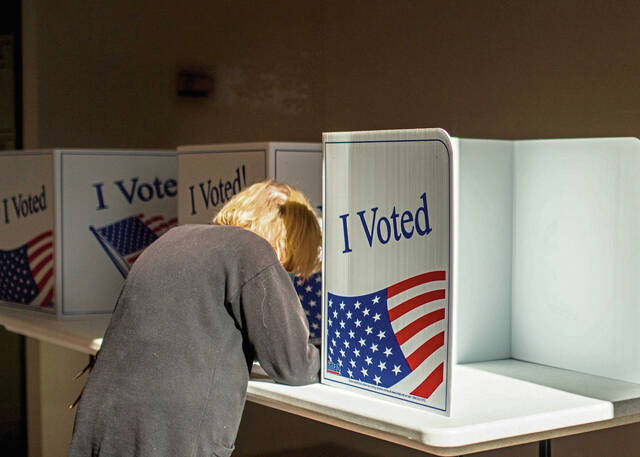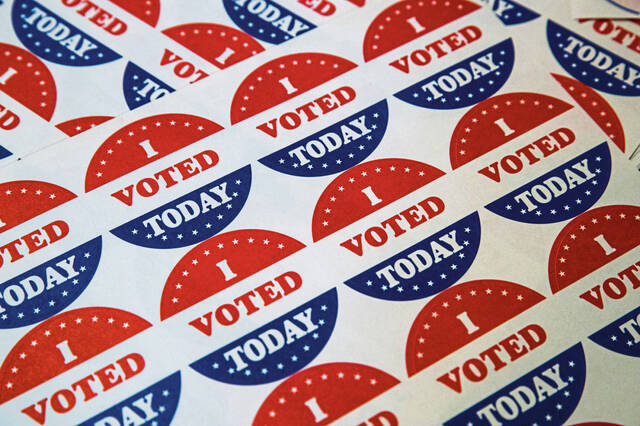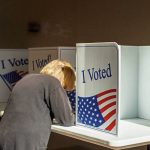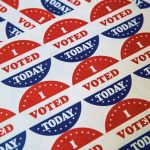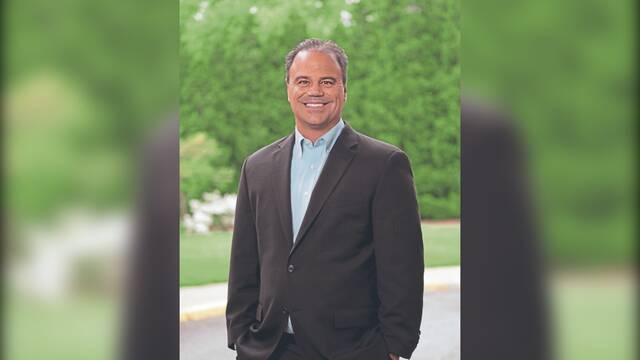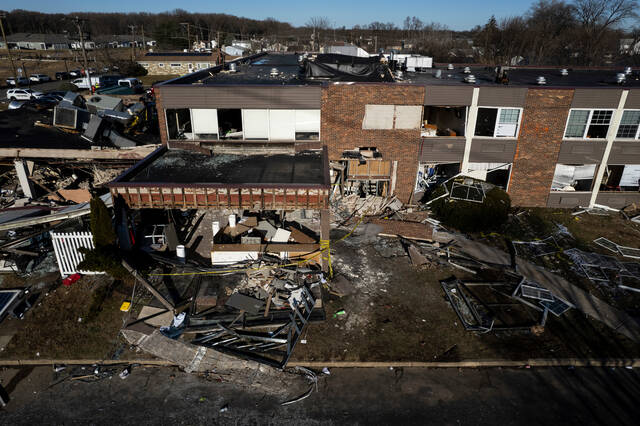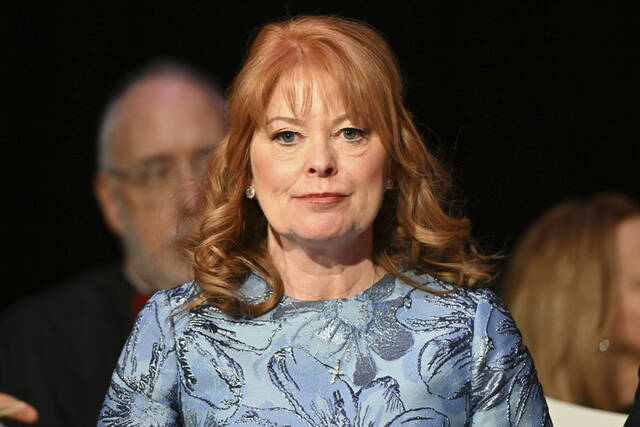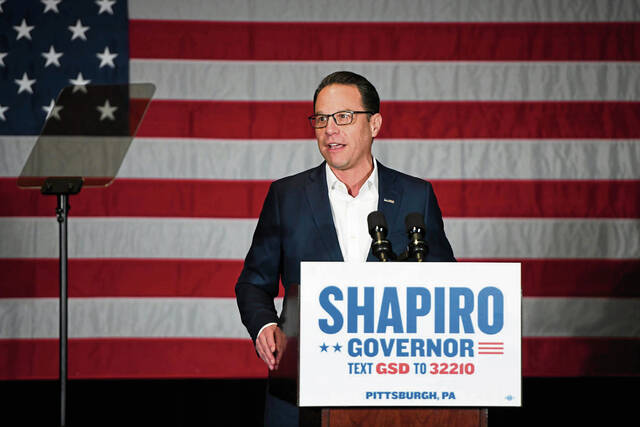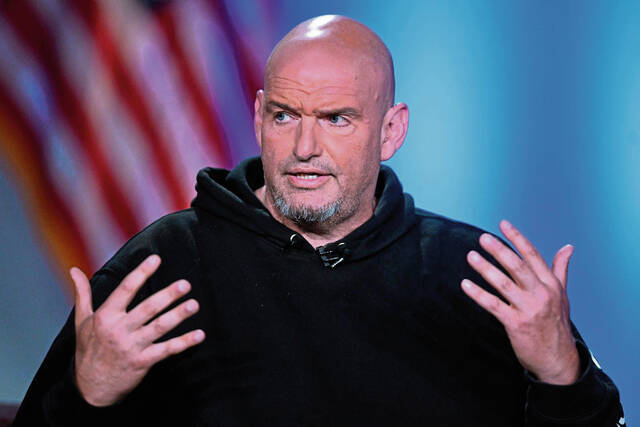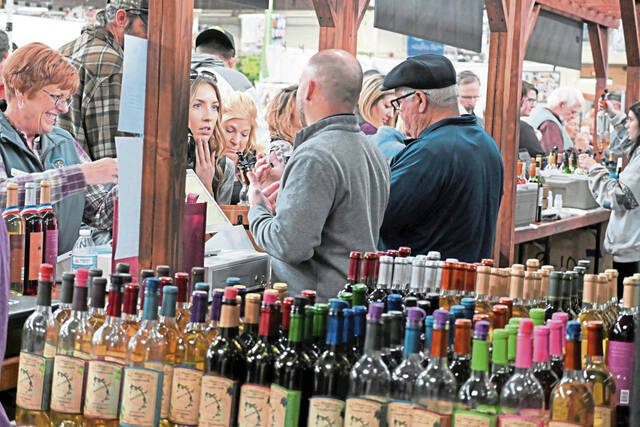Lewis McClain vividly remembers the double-digit mortgage rates of the early 1980s, and the 83-year-old Edinboro Democrat is afraid the country is headed in that direction again.
“I don’t agree with all this stimulus money giveaway,” McClain said. “All of this is going to be very inflationary. It has been in the past. … And I don’t trust the government anymore. Anything they tell me, I’m not so sure about it.”
The retired real estate broker was among 522 Pennsylvania registered voters — 39% Republican, 47% Democrat, 14% other — who participated in a Franklin & Marshall College Poll conducted Oct. 18-24.
With few statewide election races of note, the poll focused on issues driving voters as well as approval ratings for Gov. Tom Wolf and President Biden.
After 10 months of rough waters, Biden ranks below Wolf in Pennsylvania with 42% of those polled saying Wolf is doing a good or excellent job and only 32% saying that same for Biden.
The poll, one of a series ongoing statewide by Franklin & Marshall Polls, had a margin of error of plus or minus 5.2%.
In a development that could spell a challenge for Democrats in next year’s midterm elections, poll participants identified McClain’s dual concerns as the top problems facing Pennsylvanians. Government and elected officials were identified as the top problem most frequently, with 20% saying that, while 17% of those surveyed listed unemployment or personal finance as the state’s most vexing problem.
“It will definitely have an effect on how I will vote,” McClain said.
Covid-19 and civil liberties — which many argue include the right to go unmasked and unvaccinated — came in right behind the economy and distrust of government as voter top concerns. Those are issues that have been driving school board races.
Concerns about covid-19 have declined dramatically — from 32% in July to 7% in October — but that still ranked as one of the primary worries among those surveyed.
Off-year elections that lack marquee state or national races typically draw 25% to 30% of registered voters to the polls, but local veteran political strategists say all bets are off in a year that has featured neighbor-versus-neighbor battles at school board meetings in which covid-19 and masking were on the agenda.
Ben Wren, a Republican strategist with the firm Long & Nyquist, has worked on Western Pennsylvania campaigns for 15 years. He said he can’t recall ever seeing voters so engaged. He predicted school board races in which battles over masking and curriculum have dominated discussion will draw many voters to the polls.
“People are more aware of what’s happening at the local level,” Wren said. “Whether it’s a school board or town issue, people are engaged in a way they haven’t been in a number of years. If people take the next step and vote, my gut tells me (turnout) is going to be higher than it has in the past.”
Democratic strategist Michelle McFall of Murrysville suspects Wren might be right.
“I haven’t seen numbers to support this, however. Qualitatively, we’re seeing a level of messaging, especially in Westmoreland County school board races, that is driving engagement among Republicans. Voters might feel certain things, but if they are not engaged emotionally, we don’t see them vote,” she said.
Franklin & Marshall Poll Director Berwood Yost agreed.
“There is pretty compelling evidence that attitudes are related to turnout,” Yost said. “At the moment, it seems that certain types of voters (those living in less densely populated areas, men, more frequent voters) that typically align with the Republican Party are more interested and engaged. This could certainly mean that more of those voters will vote on Nov. 2.”
Yost and McFall pointed to mail-in balloting as the big unknown.
This is the first municipal race in which voters have been able to exercise no-excuse, mail-in balloting. Last year, far more Democrats took advantage of that option. Although far fewer mail ballots were requested this year, McFall noted that return rates at local election offices have been strong.
Some poll respondents, such as Nancy Glinecke, a 51 year-old Democrat from suburban Philadelphia, fear many who were galvanized by their opposition to then-President Donald Trump have grown complacent.
“I don’t think there will be any long lines at the polls this year,” she said.
Glinecke, who works in a hospital lab and wears a mask at work 12 hours a day, said she views preserving a woman’s right to choose abortion as the most important issue. She said she fears Pennsylvania may be ready to follow the trail Texas blazed when lawmakers there outlawed abortion after the sixth week of pregnancy.
But she said other issues seem to be dominating the Nov. 2 races in eastern Pennsylvania.
“People have out yard signs that say ‘Unmask our children.’ (Masking) has become so much of a political issue, and it shouldn’t be,” she said.
Poll participant Gregory Bokoch, 73, of Uniontown agreed. The retired railroad worker and registered Democrat is among the 6% of those polled whose top concern would be classified as “other.”
“The main issue out there is the division in this country that (Trump) is driving,” Bokoch said. He said he holds Trump responsible for spreading misinformation about covid-19.
“It is a public health issue, not a political issue,” Bokoch said.
Wayne Klotzbach, 57, of Norristown said the virus has become a political issue because of the economic devastation wrought by the pandemic shutdown.
“I just wish they’d let the economy totally open up. This is as good as it’s going to get,” Klotzbach said.
A registered Republican who considers himself a conservative, Klotzbach is a horticulturalist with a second job at a UPS center. He said he worked throughout the shutdown, is vaccinated and has no fear of the virus.
He said he’s offended that the media repeatedly show pictures of children hospitalized with the virus. Klotzbach said such reports are sensational and build unwarranted fears among children when the majority of serious illness is among the elderly.
He plans to vote in person Tuesday.
Back in Western Pennsylvania, McFall said it’s important that all eligible voters get to the polls or cast ballots by mail on Tuesday and in next year’s midterm elections.
“Democrats, Republicans and independents, people who are coming into this, they need to start thinking about all elections as being important,” she said. “There are no off-year elections.
”There are no inconsequential elections.”


